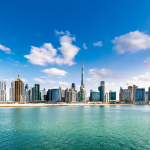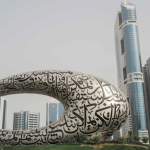The President of India – Introduction
Since India gained independence in 1947, The President of India has been a key figure in running the country. Remarkable leaders have occupied this important position for the last seventy years, playing a vital role in shaping the nation’s future. In this blog, we will take a closer look at the Presidents of India since independence, exploring their contributions, the challenges they encountered, and their impact on the country’s development.
List of all the Presidents of India since independence are as follows:
Dr. Rajendra Prasad (1950-1962)
Dr Rajendra Prasad was the first President of India, a leader with great vision. He served for two terms and was instrumental in consolidating India’s young democracy and upholding the principles of our Constitution. Indian Constitution was adopted while he was President, and set a shining example for future presidents by showing humility, integrity, and a dedication to serving the public.
Dr Sarvepalli Radhakrishnan (1962-1967)
Dr Radhakrishnan was not just the President but also a wise philosopher, scholar and statesman. When he became the second President of India, he added a lot of intelligence and wisdom to this role. Dr Radhakrishnan was a big supporter of education and cultural diplomacy. He did something special on his birthday! He declared 5th September as Teacher’s Day to honor and appreciate teachers’ important work in shaping our country’s young minds and future.
Dr. Zakir Husain (1967-1969)
Dr Zakir Hussain was a particular President as he was the first Muslim President of India. Apart from being the President, he was also an important figure in the field of education. Dr Zakir did a lot to improve our education system. He worked hard to bring changes and reforms to our schools and colleges—his relatively short time as President had a lasting impact on how education is managed in our country.
V. V. Giri (1969-1974)
V. V. Giri had a unique experience as he won the election as the only President in a controversial and close contest. It was a difficult time with lots of political challenges. But you know what? He didn’t let it get the better of him! Instead, he focused on strengthening our nation by bringing people together and fostering unity among its citizens. Despite difficulties, they worked hard to bridge the gap and ensure we all remain united as one big Indian family.
Fakhruddin Ali Ahmed (1974-1977)
When Fakhruddin Ali Ahmed was the President, there was a difficult time in India from 1975 to 1977 called the Emergency. It was a dark period in our history. During this time, the government had special powers, which some disliked. Many criticized this emergency rule, and it made everyone think and talk about the role and capabilities of the President during such situations. It was a time when there was a lot of discussion and debate about how much power the President should have in such challenging times.
Neelam Sanjiva Reddy (1977-1982)
Neelam Sanjiva Reddy created history when he became the first President of India to be elected unopposed. This happened after the challenging times of the Emergency and when democracy was back on track. As President, he worked hard to make our democratic system even more robust. They ensures that people have complete faith in the democratic process and that all voices are heard. He tried his best to ensure that our democracy was stable and prosperous.
Giani Zail Singh (1982-1987)
Giani Zail Singh was a very experienced politician who became the President at a time of political turmoil. When he was the President, there were many challenges like conflicts and tension in different regions of the country. But you know what? He didn’t back down. Instead, he worked hard to unite people and promote peace between other communities. He wanted everyone to feel united and part of one big Indian family. He believed in the strength of our country’s diversity and worked towards making India a harmonious and integrated society.
R. Venkataraman (1987-1992)
R. Venkataraman was a highly respected and essential politician and jurist. As president, he focused on ensuring that those often left out or underprivileged got a fair chance. He wanted everyone to feel included and treated equally. Venkataraman worked hard to empower the marginalized in society and bring social justice for all. He believed everyone should have equal opportunities and rights, regardless of background or circumstances.
Dr. Shankar Dayal Sharma (1992-1997)
Dr Shankar Dayal Sharma was a highly respected educationist and politician. His unwavering commitment to doing things the right way made him special. He believed in laying down principles and sticking to them, especially concerning governing the country. Sharma stressed the importance of always being honest and fair as a leader. They cared deeply for the values that the Indian Constitution stood for and worked hard to protect and uphold them. He wanted to lead by example and show that ethical leadership is vital to the well-being of our nation.
K. R. Narayanan (1997-2002)
KR Narayanan was a very special President as he was the first Dalit President of India. He had a remarkable career as a diplomat before becoming the President. They deeply cared about making our society fair and equal for all. He wanted to empower those who were often overlooked or neglected. He focused on ensuring everyone, regardless of background, had a fair chance in life. Narayanan also worked hard to strengthen our country’s relations with other countries. He believed in building strong friendships worldwide to make India a respected global player.
Dr. A. P. J. Abdul Kalam (2002-2007)
Dr A.P.J. Abdul Kalam was a very special President; people loved him so much that they called him “People’s President”. He was a scientist and an inspiration to many. When he became President, he added a scientific touch to the office, which was excellent! He cared deeply for education and believed that empowering the youth was vital to the progress of our country. Kalam also encouraged technological advancement and wanted India to be at the forefront of innovation. He believed in the power of knowledge and worked hard to ensure future generations had bright opportunities.
Pratibha Patil (2007-2012)
Pratibha Patil created history as the first woman President of India, which was amazing! During his tenure as the President, he cared a lot about improving women’s lives. She wanted to empower them and ensure that they got equal opportunities. He also focused on helping needy people through social welfare programmes. He worked hard to improve the lives of rural people and ensure they got better facilities and opportunities. She firmly believed that women should play a more significant role in all parts of society and encouraged them to be more active and involved in various fields.
Pranab Mukherjee (2012-2017)
Pranab Mukherjee was a very experienced and intelligent leader; he had a lot of knowledge about politics. While he was the President, India underwent significant changes in its economy and politics. He played an essential role in this crucial time. One of the things he focused on was making substantial changes in the economy, which we call economic reforms. He also worked hard to build strong ties with other countries through diplomacy. He wanted to ensure that India was strong and prosperous globally.
Ram Nath Kovind (2017-2022)
Ram Nath Kovind was a lawyer and served as the governor of various states. He cares deeply about ensuring that those often left out or ignored get a fair chance in life. Ram Nath wants to empower them and provide equal treatment. They also believe in the education power and wants to ensure that everyone, regardless of where they come from, has access to quality education. He works hard to make India a vital place where everyone feels included and valued.
Droupadi Murmu (2022-present)
Droupadi Murmu is the person who is currently the President of India. Before becoming President, Draupadi was actively involved in social and political work, advocating for the rights and welfare of the Murmu tribal communities. She was sworn in as the 9th Governor of Jharkhand, another historic achievement as the first tribal woman to hold the post. His tenure as governor focused on empowering marginalized communities, promoting education, and facilitating rural development.
During his presidency, President Murmu emphasized the importance of education, women empowerment and sustainable development. His leadership seeks to make India a more inclusive and progressive nation while ensuring that every citizen has the opportunity to grow and contribute to the country’s development. His presidency symbolises the strength of India’s commitment to diversity and determination to build a brighter and more equitable future for all.
Conclusion:
Since India gained independence, the President has guided our country towards progress and unity. Each President had their particular views and beliefs that they brought to the office. The President of India have a significant transformation in how our country is governed and how society functions. As we move forward and face new challenges, the role of the The President of India remains critical. They ensure that Indian Constitution, like Indian rule book, is always followed. They help guide us towards a future where we can prosper and succeed as a nation. The President of India has always been and will always be essential in making our country a better place for all.
With Post Swirl World, you will see the The President of India who played an essential role in the visit to India.




